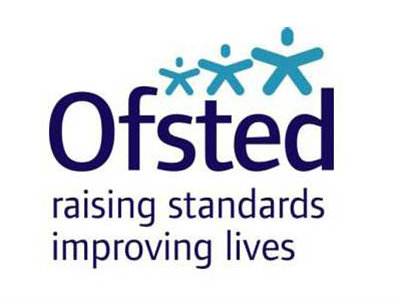
Ray Jones’ recent series of reflections on the state of children’s social work raised many interesting issues and insights worthy of debate. However, I cannot let his depiction of Ofsted’s inspection work go unchallenged.
Inspections are of course, challenging and daunting for those undergoing them. That’s unavoidable if they are to achieve their aim of getting to the heart of any issue that may be putting children at risk. There is no question that Ofsted’s single inspection framework is tougher, deeper and broader than any of its predecessors.
No apology
 We make no apology for this. The single inspection framework was a response to Eileen Munro’s ambition for the experiences of children, their journey and outcomes to be at the heart of professional practice. This principle is therefore right at the core of Ofsted’s approach.
We make no apology for this. The single inspection framework was a response to Eileen Munro’s ambition for the experiences of children, their journey and outcomes to be at the heart of professional practice. This principle is therefore right at the core of Ofsted’s approach.
Inspectors no longer focus on process but on the life experiences of children and young people. Professor Munro herself found the single inspection is leading to improvements in professional practice. Feedback from the sector has also confirmed that the new framework provides the clearest account of good practice they have seen.
We know caseloads are high and supervision inadequate
As our most recent annual report made clear, Ofsted recognises the difficulties facing the sector in the current climate. We know that even in the weakest areas, professional staff are trying their best in the most challenging of circumstances. Their caseloads are often high, their supervision can be inadequate, and leadership often unstable. Such circumstances are not of Ofsted’s making, but they must necessarily inform the judgements our inspectors make.
These judgements are rooted firmly in the evidence. After the recent inspection of Leeds City Council children’s services (rated as ‘good’) our team of inspectors were praised by Lord Laming for the ‘courage to be unequivocal in their assessments’ and ‘a job well done’. HM Inspectors are certainly not afraid of giving positive judgements where they are merited.
Judgements are necessary for change
Inspection judgements may be difficult to stomach in areas found to be less than good, but they are necessary to galvanise much needed action and change. Sir Michael Wilshaw has been clear, time and again, that kneejerk reactions to Ofsted judgements are not helpful to authorities – or more importantly to children and young people. Leaders, assuming they are up to the task, must be given the support – and importantly the time – they need to make the necessary changes and improvements. Ofsted’s improvement offer to authorities seeks to support this.
Ofsted has long recognised that multi-agency work is vital to ensure children are effectively safeguarded. This is clearly demonstrated in our assessments of Local Children Safeguarding Boards. We have also been working with our fellow inspectorates from the police, health and probation services to develop a programme of joint inspections that will be much more targeted, more responsive, and provide a shared narrative about what is happening locally. The model will roll out from this autumn, after consultation.
Improvement work
Since taking over children’s social care inspection, Ofsted has used its unique position and nationwide perspective to help disseminate the good practice it observes and learns about, not least in our ‘Getting to Good’ seminars. Over the past year, we have also carried out and published thematic inspection findings on child sexual exploitation, leadership in children’s services, early help and out of area care placements. We have also begun to work more closely with those authorities which require improvement to help make sure they are addressing the concerns identified.
I am the first to admit that we in Ofsted need to continue to examine our practice, to learn and to evolve in order to ensure inspection can play the fullest part possible in improving children’s lives and ensuring they are safe.
I hope that moving forward, we can have a more constructive debate with Professor Jones and other influential players in the sector about the role inspection has to play in making things better for our most vulnerable children and young people.
Debbie Jones is Ofsted’s Director for Social Care




 Bournemouth, Christchurch and Poole
Bournemouth, Christchurch and Poole  Hampshire County Council
Hampshire County Council  Lincolnshire County Council
Lincolnshire County Council  Norfolk County Council
Norfolk County Council  Northamptonshire Children’s Trust
Northamptonshire Children’s Trust  South Gloucestershire Council
South Gloucestershire Council  Wiltshire Council
Wiltshire Council  Wokingham Borough Council
Wokingham Borough Council  Children and young people with SEND are ‘valued and prioritised’ in Wiltshire, find inspectors
Children and young people with SEND are ‘valued and prioritised’ in Wiltshire, find inspectors  How specialist refugee teams benefit young people and social workers
How specialist refugee teams benefit young people and social workers  Podcast: returning to social work after becoming a first-time parent
Podcast: returning to social work after becoming a first-time parent  Podcast: would you work for an inadequate-rated service?
Podcast: would you work for an inadequate-rated service?  Family help: one local authority’s experience of the model
Family help: one local authority’s experience of the model  Workforce Insights – showcasing a selection of the sector’s top recruiters
Workforce Insights – showcasing a selection of the sector’s top recruiters 

 Facebook
Facebook X
X LinkedIn
LinkedIn Instagram
Instagram
Comments are closed.